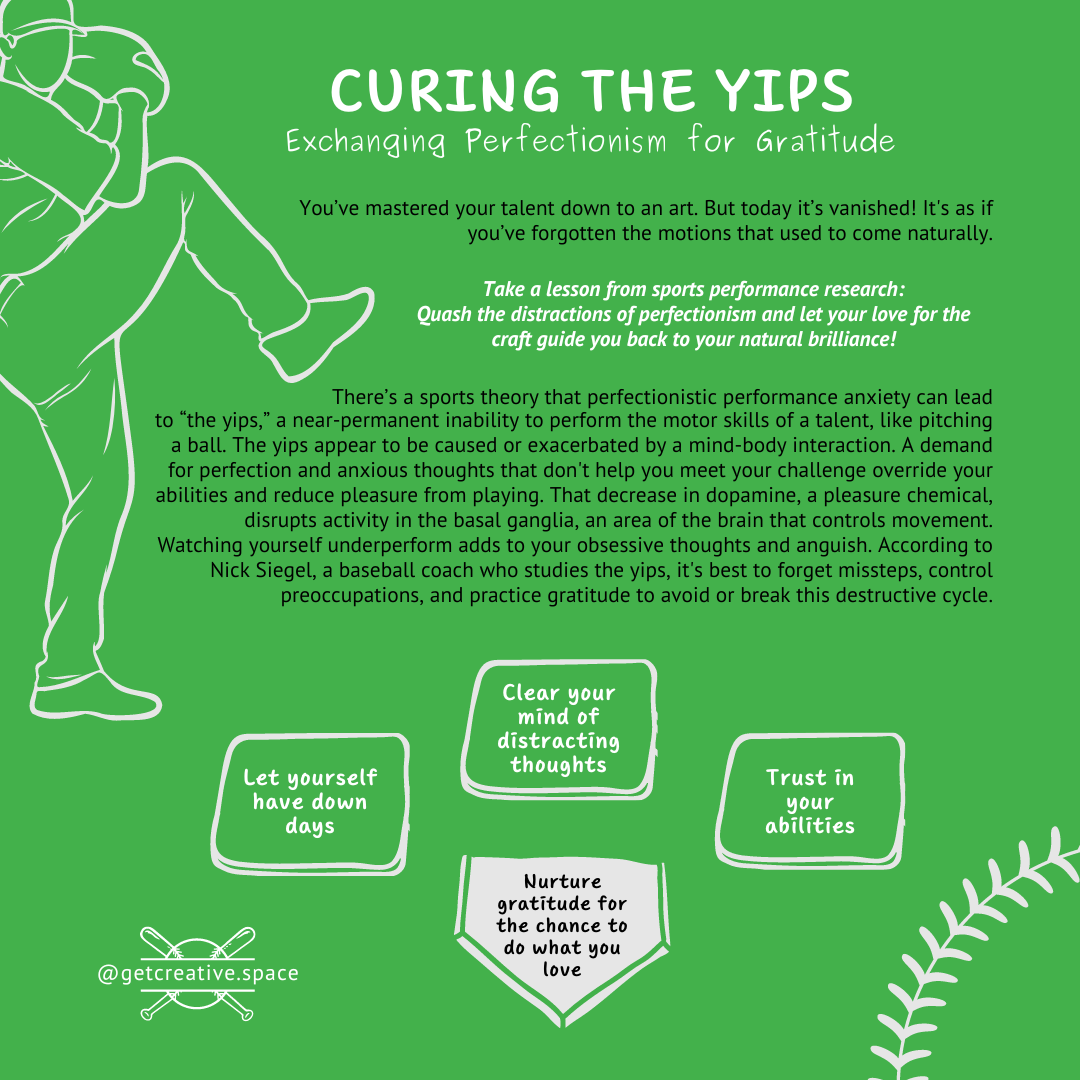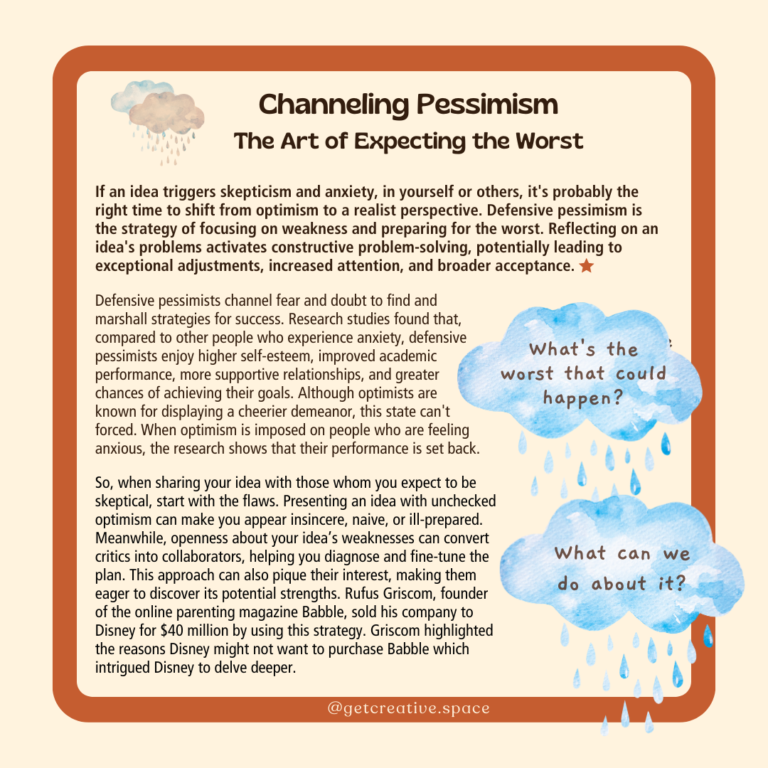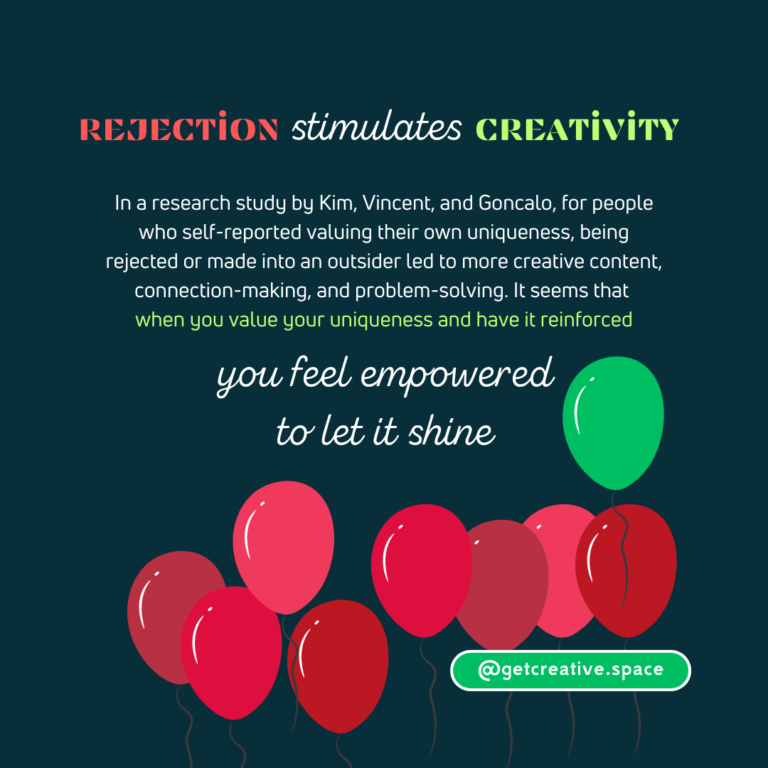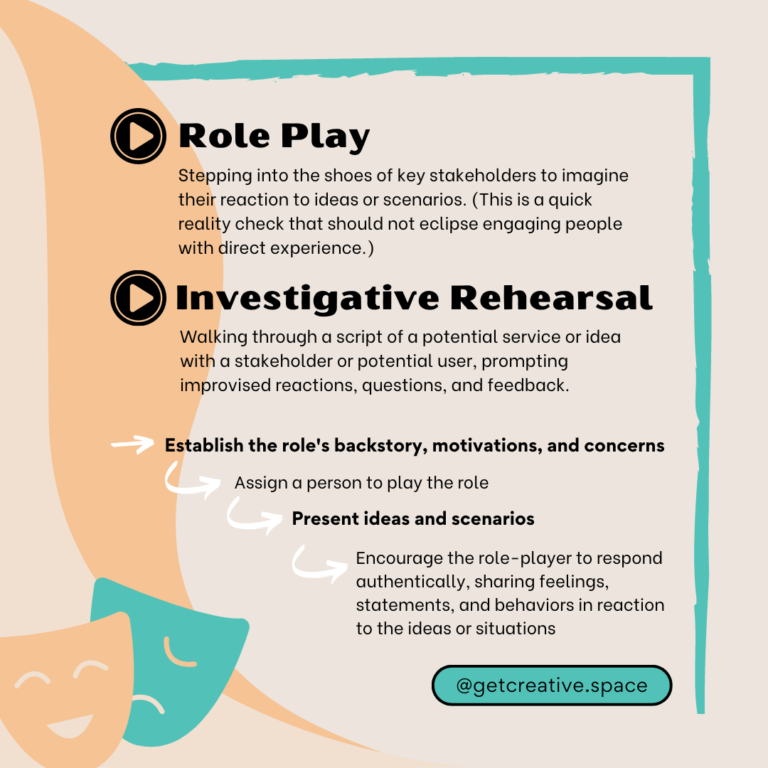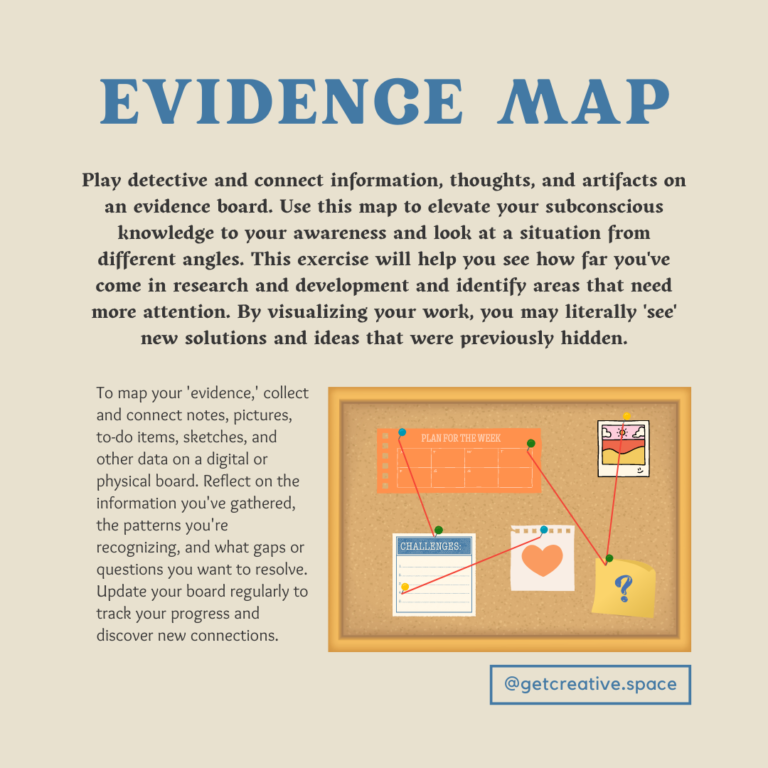Curing the Yips: Exchanging Perfectionism for Gratitude
You’ve mastered a talent down to an art. But today it’s disappeared. It’s like you’ve lost the motions that used to come naturally. You’ve forgotten how to do what you do best.
Take a lesson from sports training: don’t let the anxiety consume you. Remember your love for the craft and let yourself simply have a down day or week or month.
There’s a sports theory that dwelling anxiously on performance demands can lead to a near-permanent inability to perform known as “the yips.” “The yips” is a curious phenomenon that ails experienced athletes, causing them to suddenly and inexplicably lose the ability to perform the fine motor skills of their talent. This case has afflicted well-known and accomplished baseball pitchers, softball pitchers, golfers, and dart throwers. If you’re a baseball fan who has the misfortune of seeing a player come down with the yips, it might look like they’ve suddenly forgotten how to throw a ball. It’s a tragic moment.
Based on current research, mental, neurological, and physiological issues seem to interplay to produce the yips. While many athletes with the yips have a tendency towards perfectionism and obsessive thoughts, they also have disruptions in their basal ganglia, an area of the brain that modulates movements and allows them to be performed smoothly. But because the basal ganglia are affected by dopamine, one of the “feel good” chemicals in the brain, even this condition is exacerbated or caused by distracting thoughts and negative emotions. A demand for perfection and preoccupation with unimportant issues can decrease the feeling of pleasure from playing. That dopamine loss literally disrupts a player’s physiological ability to make the fine-tuned motions necessary for professional play.
According to Nick Siegel, a coach whose personal connection to the yips led him to delve into the research, you must avoid or disrupt the cycle between negative emotions, misguiding thoughts, and interrupted kinetic ability. Here are his tips for escaping the anxiety of perfectionism:
- Don’t focus on week-to-week fluctuations or force yourself to put out a perfect effort
- Avoid the distraction of unnecessary preoccupations that will get in the way of trusting in yourself
- When you have a bad day, practice gratitude for the chance to do what you love
The yips are a stark reminder that an extreme pursuit of perfection can divert us from success. Mastery is not about flawlessness, but about resilience and patience. Embrace the wisdom of coaches like Nick Siegel by keeping in mind your joy for this work and forgetting the rest. Remember that passion is what brought you here in the first place. You haven’t lost the ability to perform; you’ve just misplaced your rhythm. So, dust yourself off, take a deep breath, and let your love for the craft guide you back to your natural brilliance.

